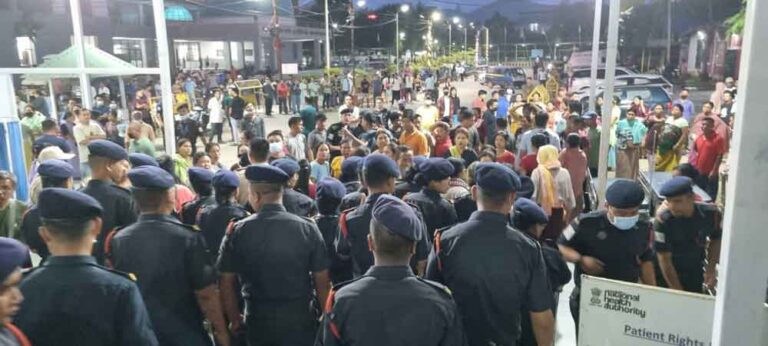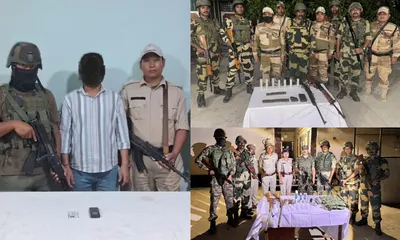The Jiribam Kidnapping Incident: A Tragic Snapshot of the Manipur Conflict
Summary
Manipur continues to face turmoil as a violent incident in Jiribam reveals the severity of the state’s conflict. Armed militants abducted three Meitei women and three children following an attack on a police station and a CRPF camp. Tragically, six internally displaced persons (including a child) lost their lives in this episode, sparking local and international outcry. Civil organizations and political groups have called for immediate intervention, emphasizing justice and peace.
Long Article
Understanding the Jiribam Crisis
Manipur’s ongoing conflict has reached another heart-wrenching low with the recent kidnappings in Jiribam. This violent episode is a microcosm of the broader tensions plaguing the state, where ethnic, political, and communal challenges collide.
The abduction occurred following an armed attack on the Borobekra Police Station and the Jakuradhor Karong CRPF camp. Security forces retaliated, killing 10 militants. In response, the assailants took hostages, including women and children, highlighting the human cost of this conflict. Among the victims was an infant, an innocent life lost in this brutal clash.
What Escalated the Situation?
This incident is rooted in Manipur’s ethnic tensions, primarily between the Meitei, Kuki-Zo, and other local communities. The kidnapping occurred amidst broader issues of displacement and unrest, further destabilizing an already fragile environment. Attacks like these underscore the desperate and retaliatory nature of the violence, where civilians often bear the brunt.
The Role of Civil and Political Groups
The tragedy has galvanized various organizations and political leaders. Civil bodies like the Youth Collective Manipur and the Nupi Union for Peace have approached the United Nations, demanding global intervention. Their pleas focus on addressing crimes under international law, such as the Geneva Conventions, and pushing for accountability through independent judicial probes.
Political leaders, including those from the National People’s Party (NPP), have condemned the violence and urged key influencers like Union Home Minister Amit Shah to intervene. Their emphasis remains on peaceful resolutions while securing the hostages’ release.
What Needs to Change?
- Community Dialogue: Bridging the divide between ethnic groups is crucial for long-term peace. Leaders and mediators must foster open discussions.
- Accountability: Establishing a judicial inquiry into incidents like this can set a precedent against impunity.
- Reforms in Security: Strengthening local law enforcement and intelligence-sharing can prevent such events.
- International Mediation: The appeal to the UN indicates a need for external oversight to ensure human rights are upheld.
The Broader Impact on Manipur
Incidents like the Jiribam kidnapping ripple through communities, deepening mistrust and grief. Beyond the immediate casualties, they leave emotional and psychological scars, particularly on displaced families who already live in uncertainty.
Efforts to repeal controversial laws like the Armed Forces (Special Powers) Act (AFSPA) remain central to calming the state’s unrest. While AFSPA grants security forces sweeping powers, critics argue it exacerbates tensions by alienating local populations.
A Call for Justice
The people of Manipur are appealing for more than just a resolution—they are demanding justice. The Jiribam incident is a stark reminder of the fragile peace in conflict zones. It also emphasizes the need for comprehensive policies that prioritize human dignity and security.
FAQs
- What triggered the Jiribam kidnapping?
The incident followed a militant attack on security installations, leading to retaliatory action and subsequent abductions. - What steps are being taken to resolve the crisis?
Local leaders, civil bodies, and international organizations are advocating for interventions, including judicial inquiries and global mediation. - How does this impact the ongoing ethnic tensions?
The incident deepens divides between communities, making reconciliation even more challenging. - What role does AFSPA play in this crisis?
AFSPA allows broad military powers, which some believe worsen local tensions by undermining trust. - Can international involvement make a difference?
Many believe global pressure could bring accountability and foster peace-building initiatives.



